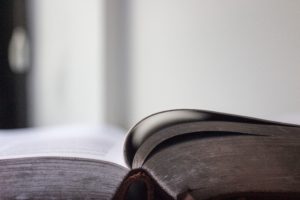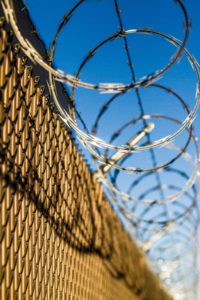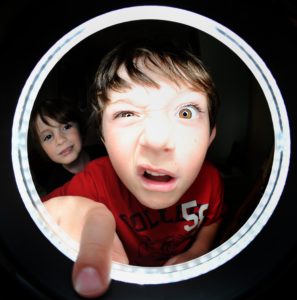Obedience
A reader commented on my last post, asking me what I thought about obedience. What a great question!

According to Online Oxford Dictionary, obedience is “compliance with an order, request, or law or submission to another’s authority.”
Before we continue, let me make clear this is not a religious discussion. I know obedience is an important idea in a religious context, and I respect many people of faith have specific expectations about obedience as it pertains to their belief system, whatever that may be. I’m not a religious scholar, nor do I follow any formal religious framework, so I don’t feel capable of exploring that aspect of obedience.
However, the concept of obedience is everywhere because we are social creatures and naturally form ourselves into groups. Where there are groups there are power dynamics, and, for me, obedience is about power.
Power, by the way, is not love. It’s important to be clear about that.
Obedience is a timely topic, because the coronavirus crisis has changed and limited our lives in many ways, whether we agree with the necessity for masks, social distancing, lockdowns and quarantines or not.
The choice to be obedient hinges on our willingness to recognize authority. Authority is “the power or right to give orders, make decisions, and enforce obedience.” I freely admit to being wary of authority, because it’s often about power-over, and that kind of dynamic takes away or limits choice.

How do we determine the legitimacy of authority, and how do we agree on whose authority we will follow?
These are vital questions, because if we don’t trust or respect the authority giving orders and making decisions, we are less likely to be obedient.
People claim authority for all sorts of reasons, including their biological sex, the color of their skin, their age, their social position, their wealth, their education and experience, their size and strength, their religious beliefs, and their personal sense of entitlement. Some pathetically impotent people believe their willingness to intimidate or hurt another gives them authority.
Psychologically speaking, some people are better wired for obedience than others, which is not necessarily a bad thing. Nor do I view the willingness to be disobedient as necessarily negative or positive. It seems to me we need the ability to practice both in order to reclaim a vital, resilient culture.
Obedience, like faith, tolerance, respect and so many other intangible ideas, needs limits and boundaries, which means we must stay in our own personal power when we deal with authority. Mindless, blind obedience (or disobedience) is a slippery slope. An authority that cannot tolerate questions, controls information, and accepts no limits is a problem.
Some people feel most comfortable with someone else in power, making decisions, mandating behavior, and keeping everything cut and dried. They keep the trains running on time and don’t worry about what’s loaded in them or where the trains are going. They do well in schools, big businesses and the military, any context with clear operating procedures and chains of command. They look to their peers and popular culture, like memes, movies and social media, to shape their opinions, tastes and in-groups. They are content to be led and influenced and often welcome authority with open arms. As long as the authority they bow to is competent and benign, all goes well.

However, authority is power, and power attracts corruption and the corruptible. Cluster B personalities are everywhere: in family systems, in religious organizations, in businesses and schools, in the military and in politics. They think they’re more important than anyone else. They think they can do whatever they want whenever they want because they’re special. They operate strictly out of self-interest and are without empathy or interest in anyone else’s well-being. They reject expert advice and collaboration, data, and education. They always have to win and be right, and must maintain their sense of superiority and control.
Such people are catastrophic authorities and don’t deserve to be in power or command obedience, but in order to discern between benign and malign authority, we must be willing to see clearly; educate ourselves about social power dynamics; research, explore and think for ourselves; and have the courage to rebel and resist. We must learn to manage our power of consent, which includes being able to freely and firmly say no or yes, and be willing to shoulder full responsibility for our actions. If we don’t do these things, we can’t recognize wolves in sheep’s clothing, and we’ll be deselected.
Obedience is a dance with choice and consequences. I am frequently disobedient in one way or another, and I accept responsibility for the consequences of my choices. Make no mistake, consequences for social disobedience can be extremely harsh. Tribal shaming, scapegoating, silencing and chronic long-term shaming and blaming are devastating to deal with and leave permanent scars.
Institutional disobedience can be punished by things like jail time, fines, getting fired or getting kicked out of businesses and venues.
Refusing to follow CDC and expert medical guidelines right now puts everyone at higher risk for illness and death, and will further destabilize the economy, the food supply, the medical system, our country, and our world.
Many methods of enforcing obedience are possible only in a power-over dynamic. The person claiming authority is in a position to withhold benefits like money, position, power or even love. The Harvey Weinsteins of the world are masters at this kind of exploitation, and it works well as long as the victim believes the authority has something they need and will make a deal.
Again, this harks back to personal power. If we are healthy enough to be self-sufficient, independent and confident of our abilities, if we love and respect ourselves and refuse to negotiate our integrity, we’re less dependent on the power of others. If we recognize malign, incompetent authorities for what they are, we’re less likely to become their victims.
I frequently choose to obey or comply with authority. It just depends on the context and the nature of the authority handing out the orders.

When I do a Google search on obedience, I find memes that imply obedience equals safety. I don’t believe that for a single second. Obedience, in my life, has never meant safety. Self-reliance has been far safer. Equating safety with obedience is an authoritarian tactic meant to keep people in line. I wear a mask in public right now, per CDC guidelines, because I believe it to be a sensible choice for myself and others. It may help me avoid COVID-19, and it may help prevent me passing it to others. It does not guarantee anyone’s safety. It’s no one’s responsibility but my own to keep myself safe.
In the end, my greatest obedience is to myself and my own integrity. I trust my common sense, empathy, and wisdom. I don’t put myself in a position of dependence on others. I’m rigorous in evaluating sources of news, information and guidance, and I’m happy to submit to such authorities, not because they demand or expect it, but because I choose to.

